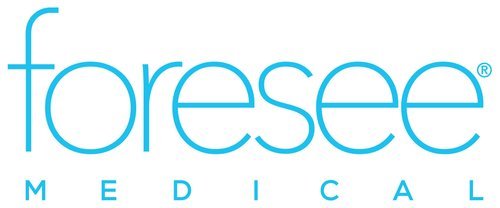CMS Starts Initiative Aimed at Enhancing Primary Care
The Centers for Medicare & Medicaid Services (CMS) have introduced a new primary care model called Making Care Primary (MCP) Model, which will be tested in eight states under the Center for Medicare and Medicaid Innovation. The aim is to improve access to high-quality primary care, which has been found to result in better health outcomes and greater equity for people and communities. This move is particularly important for smaller or independent primary care organizations, as it strengthens the primary care infrastructure in the country. The goal of the model is to provide better care for patients. This will be achieved by improving care management and coordination, giving primary care clinicians tools to work with healthcare specialists, and using community connections to address patients' health and social needs.
CMS Administrator Chiquita Brooks-LaSure stated that the Making Care Primary Model is aimed at enhancing healthcare for individuals who have Medicaid and Medicare. This model is a method employed by CMS to provide improved access and quality care, especially for individuals in rural areas and other marginalized populations. The focus of this model is to enhance care management and coordination by providing primary care clinicians with tools to collaborate with healthcare specialists and community-based organizations. This will assist individuals in managing their health conditions and achieving their health objectives.
MCP aims to achieve three goals. First, it seeks to provide primary care to patients that is person-centered, accountable, integrated, and coordinated. Next, it aims to establish a path for primary care organizations and practices, including those that are small, independent, rural, and safety net organizations, to enter into value-based care arrangements. Finally, it aims to enhance the quality of care and health outcomes of patients, while also reducing program expenditures.
Participants of the MCP Model will receive extra income to improve infrastructure and make primary care services more available. Additionally, the model will incentivize better coordination between primary care providers and specialists. CMS’s ultimate goal is to improve preventive care and reduce avoidable costs through improving measures like repeat hospitalizations. The MCP program will run for a duration of 10.5 years, starting from July 1, 2024, and ending on December 31, 2034. The program will incorporate several primary care models that have been implemented previously, including Comprehensive Primary Care which ended in December 2016, CPC+ which ended in December 2021, Primary Care First ending in 2027 (cohort two), and the Maryland Primary Care Program, scheduled to end in 2026.
The advanced primary care model will be tested by CMS in eight states: Colorado, Massachusetts, Minnesota, New Jersey, New Mexico, New York, North Carolina, and Washington. CMS intends to collaborate with the participants of the model in addressing priorities unique to their communities, such as care management for chronic illnesses, behavioral health services, and access to healthcare for those residing in rural areas. CMS is collaborating with State Medicaid Agencies in eight states to carry out complete care transformation across public programs. They aim to involve private payers in the near future. The flexible multi-payer alignment strategy of the model enables CMS to expand on current state innovations. Under this model, all patients that participating primary care clinicians serve will benefit from better care delivery, financial investments in primary care, and learning tools and supports.
To ensure good health, it is important for patients to have a good relationship with their primary care teams. These teams provide preventive services, manage chronic conditions, and coordinate care with other clinicians. Primary care teams can improve their ability to address chronic diseases and reduce the need for emergency visits and hospital stays by investing in care integration and management capabilities, ultimately lowering healthcare costs. The model is designed to assist healthcare providers with different levels of experience in value-based care, such as FQHCs and inexperienced physician practices. CMS aims to decrease disparities in care and enhance patient experience and outcomes.
According to Liz Fowler, the Deputy Administrator and Director of the Center for Medicare and Medicaid Innovation, improving the stability, resiliency, and accessibility of primary care will enhance the healthcare system. The Making Care Primary Model is a significant investment in primary care and aims to achieve accountable care arrangements, particularly advanced primary care, for all Traditional Medicare beneficiaries and most Medicaid beneficiaries by 2030.
The program has three tracks for participants based on their experience with value-based care and alternative payment models. The participants include FQHCs, Indian Health Service facilities, and Tribal clinics. All three tracks offer enhanced payments. Participants in Track One will focus on building infrastructure to support care transformation. The model in Tracks Two and Three will involve advance payments and provide more chances for bonus payments based on participant performance. This will assist clinicians at different stages of readiness to shift towards value-based care, aligning with CMS's objective to have all traditional Medicare beneficiaries under a care relationship that takes responsibility for quality and total cost of care.
Starting in late summer 2023, primary care organizations in eligible states can submit their application for the model. The model itself will be launched on July 1, 2024.
To qualify for MCP participation, your organization must meet the following requirements:
● Be a legal entity authorized to conduct business in each state where it operates
● Be enrolled in Medicare
● Bill for health services provided to at least 125 attributed Medicare beneficiaries
● Have more than 50% of its primary care facilities located in an MCP state.
For healthcare organizations looking to succeed in value-based care delivery models, ForeSee Medical is a specialized software platform designed to increase the profitability of Medicare Advantage risk contracts. Using AI including NLP and machine learning, ForeSee Medical perfects HCC risk adjustment scores, empowering providers to positively influence health outcomes.
Blog by: The ForeSee Medical Team




